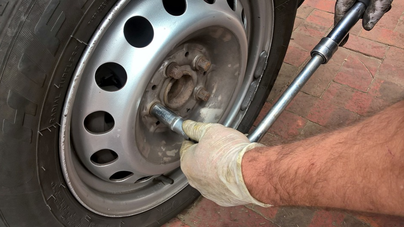Improve Your Drive: Top-Notch GMC Tires Service at Morris Tires
Improve Your Drive: Top-Notch GMC Tires Service at Morris Tires
Blog Article
Tire Service: The Impact of Climate Condition
When it comes to making certain ideal performance and security on the road, understanding the effect of weather condition problems on tire service is vital. GMC Tire Service. In this conversation, we will discover the elaborate connection in between weather problems and tire service, dropping light on the relevance of weather-specific tire upkeep techniques and factors to consider.
Warm and Tire Efficiency
When revealed to high temperature levels, tires experience adjustments in efficiency that can significantly impact lorry safety and security and handling. The warm created from extended driving or heat conditions creates the tire rubber to soften, causing decreased step life and raised wear. As the rubber ends up being softer, the tire's grip when driving lessens, influencing stopping ranges and overall grip. In severe instances, too much heat can also cause tire blowouts, positioning a serious safety and security risk to the car and its residents.

Cold Climate Results
Cold weather problems can have a substantial effect on tire efficiency and safety. As temperature levels decline, tire rubber can set, causing reduced traction on icy or snow-covered roadways. In winter, tires may also lose atmospheric pressure much more rapidly, which can impact handling and gas performance. In addition, chilly temperatures can cause tire sidewalls to stiffen, raising the danger of damage from splits or other roadway risks.
To minimize the results of winter on tires, it is crucial to regularly inspect tire stress and inflate them to the manufacturer's suggested degrees. Utilizing winter months or all-season tires developed for cold weather conditions can also enhance traction and grasp on icy or snowy roadways. Correct tire click here for more maintenance, including normal assessments for wear and damage, ends up being even much more essential throughout colder months to ensure optimal performance and safety.
Rainy Conditions Impact
Tires with damaged footsteps are extra susceptible to hydroplaning, where a layer of water develops up between the tire and the roadway surface area, leading to loss of grip. To fight this, chauffeurs should frequently evaluate their tires for adequate tread deepness and think about spending in tires specifically designed for damp problems.
Additionally, wet weather condition can additionally lower presence, making it challenging for motorists to see the roadway in advance plainly (GMC Tire Service). In such problems, it is important to adjust driving speeds as necessary and keep a risk-free complying with range to enable sudden stops. Correctly inflated tires can also aid in maintaining control on wet roads by supplying far better handling and hold
Snow and Tire Safety And Security
When driving in snowy conditions, having the best tires can make a substantial difference in safety and efficiency. Winter months tires are developed with unique rubber substances and step patterns to provide much better grip on snow and ice contrasted to all-season tires.

It is important to adhere to producer instructions when utilizing and installing tire chains to prevent damages to Learn More Here the tires and lorry. By picking the best tires, keeping correct rising cost of living, and thinking about additional grip help like tire chains, chauffeurs can enhance their safety when browsing snow-covered roads.
Weather-Related Tire Maintenance
Weather-related tire upkeep encompasses a range of techniques aimed at guaranteeing optimum tire function and longevity in different weather condition scenarios. One key aspect of weather-related tire upkeep is tire pressure regulation. Inspecting tire walk consistently and replacing tires when step wear gets to a particular depth is resource crucial for keeping grip and stability in unfavorable weather.
Verdict
In verdict, weather problems have a significant impact on tire efficiency and safety. From heat influencing tire pressure and use to chilly climate minimizing traction, it is vital to think about the weather condition when preserving and using tires.
In this conversation, we will certainly explore the detailed relationship between weather problems and tire solution, dropping light on the importance of weather-specific tire upkeep methods and considerations.

Report this page